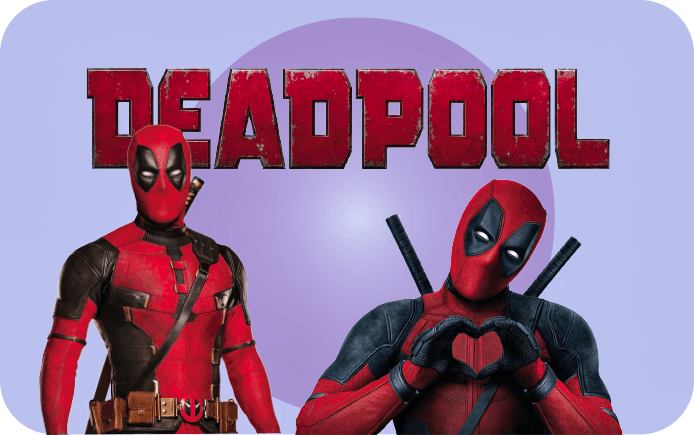How Deadpool saved the superhero movie (and how he could do it again)
Maximum effort!

In the first trailer for Marvel Studios’ new superhero blockbuster Deadpool & Wolverine, Deadpool, the foul-mouthed, fourth-wall-breaking antihero, declares himself the saviour of the Marvel Cinematic Universe. “I am… Marvel Jesus!” he says, with typical Deadpool humility.
The thing is, he might be right. Sort of.
Credit: Deadpool & Wolverine | Official Teaser (Marvel Entertainment, YouTube)
Superhero fatigue
Back in 2016, the superhero movie genre was beginning to look a little tired. Time and again, we saw cinematic mis-steps like Fant4stic, X-Men: Apocalypse and Suicide Squad - not to mention Zack Snyder’s divisive DC slugfest, Batman v Superman: Dawn of Justice.
While the quality of these films varied, one thing was becoming increasingly clear: superhero movies were starting to take themselves a little too seriously.
Even the mega-popular Marvel Cinematic Universe was getting in on the trend. Gone was the pulpy, alien-smashing fun of The Avengers; now, in Captain America: Civil War, Earth’s Mightiest Heroes found themselves embroiled in a knotty political morass, wrestling with their own accountability and dealing with serious trauma.
It’s a great movie, but heavy stuff. And, by and large, audiences were beginning to get a little bored of all the naval-gazing. People started to talk seriously about ‘superhero fatigue’.
The genre needed a change. Something to shake things up, and inject a bit of fun back into the blockbuster movie landscape. And Ryan Reynolds had just the thing.
Along came Deadpool
Love him or hate him, the Merc with a Mouth instantly resonated. Brought effortlessly to life by Reynolds, Deadpool is a burst of anarchic joy: a masked, sword-wielding smart alec, shooting off one-liners and bullets in equal measure.
And with his constant pop culture references, particularly in relation to other superhero movies, he’s a hero in conversation with the fans - often literally. Deadpool felt like a superhero movie made for the fans, by the fans, celebrating the genre while also mocking it mercilessly.
And, crucially, injecting a much-needed dose of fun.
Audiences lapped it up: filmed on a modest budget of $58m, Deadpool ended up a massive hit, even bagging the best ever opening for an R-rated movie with a whopping $134m. A record which has only recently been beaten - by Deadpool himself, as it happens.
Superhero fatigue returns
Now, the looming threat of superhero fatigue has returned, stronger than ever. In recent years we’ve seen a run of box office failures - The Marvels, Aquaman and the Lost Kingdom - and genuine cinematic duds - Morbius, Madame Web.
The DC Universe is in the process of being rebooted. Even the formerly unstoppable Marvel Studios has had to give its upcoming slate a bit of a rethink, bogged down in controversies and criticisms of diminishing quality.
Not to mention a muddled, directionless overarching storyline involving the multiverse - something that Deadpool & Wolverine looks to be addressing head-on, in typically unflinching style.
And what better time to do it, with audiences seemingly growing bored of the self-serious, hard-to-follow antics of their on-screen heroes? Once again, superhero movies desperately need to be taken down a peg or two.
They need to be made fun of, and audiences need to be reminded that these things should be, above all else, entertaining. And, judging by those early, record-breaking box office numbers, it looks like Deadpool has once again come to the rescue.
Deadpool & Wolverine is in cinemas now, and you can catch the first two movies featuring the Merc with a Mouth - Deadpool (2016) and Deadpool 2 (2018) - on Disney+.
















